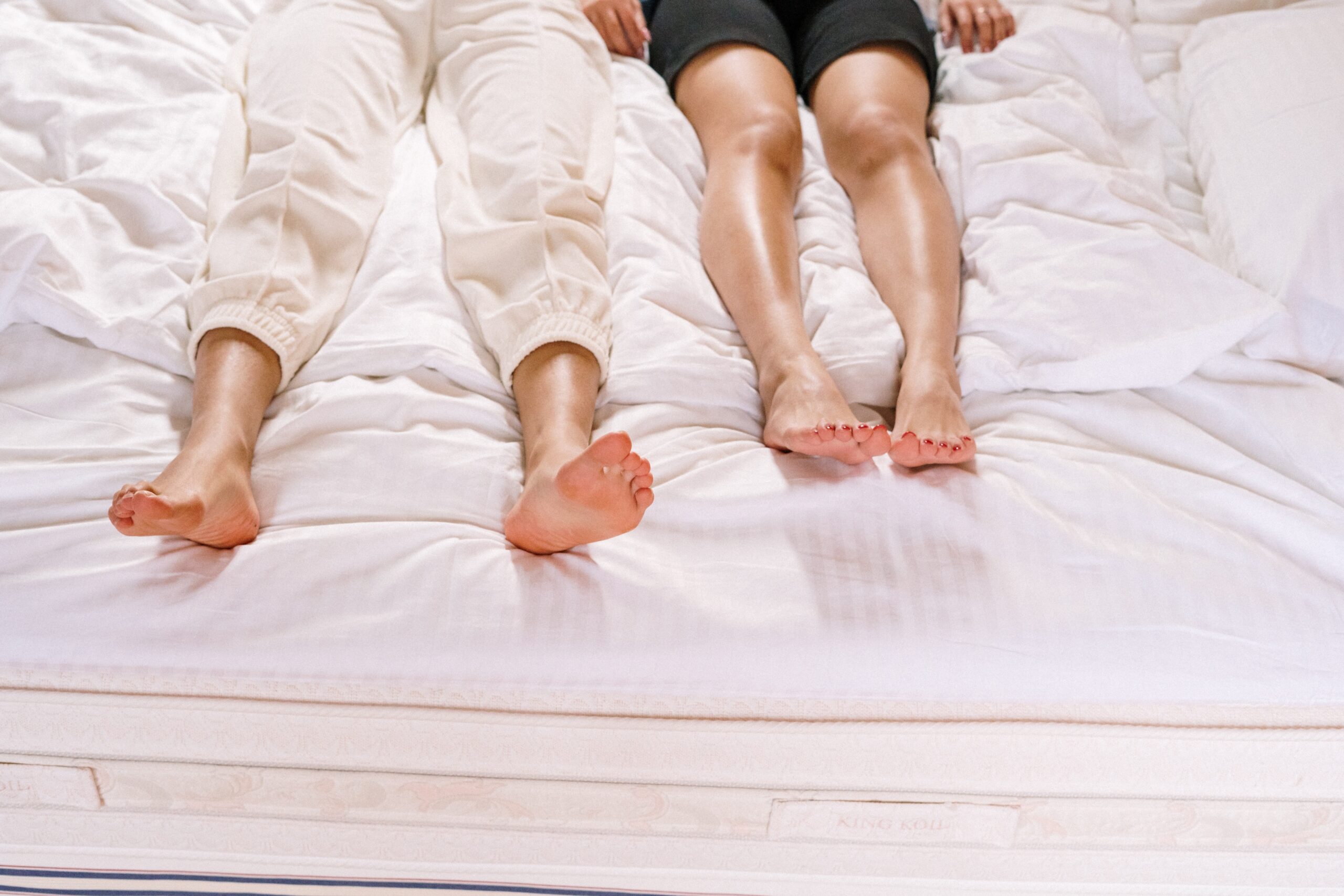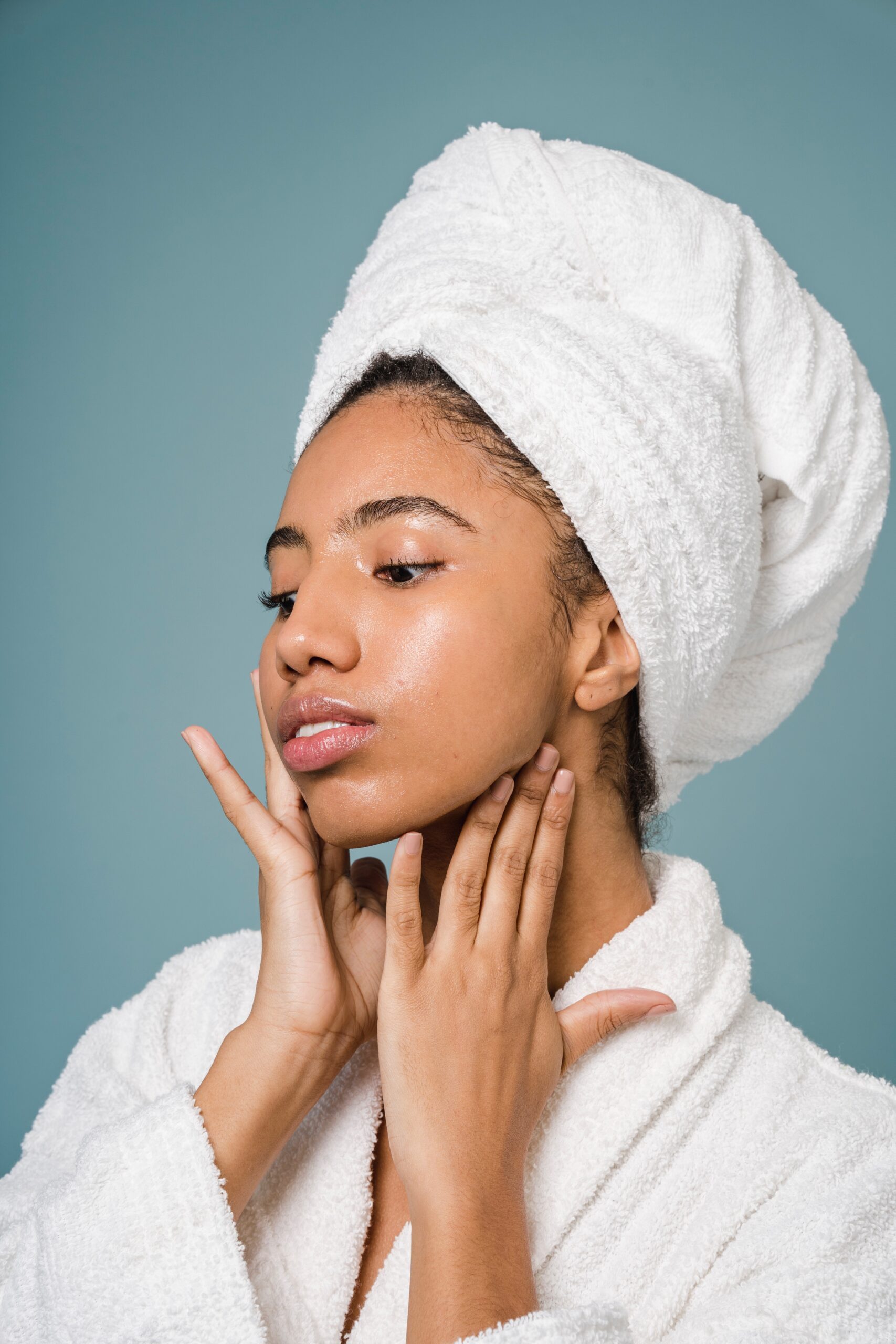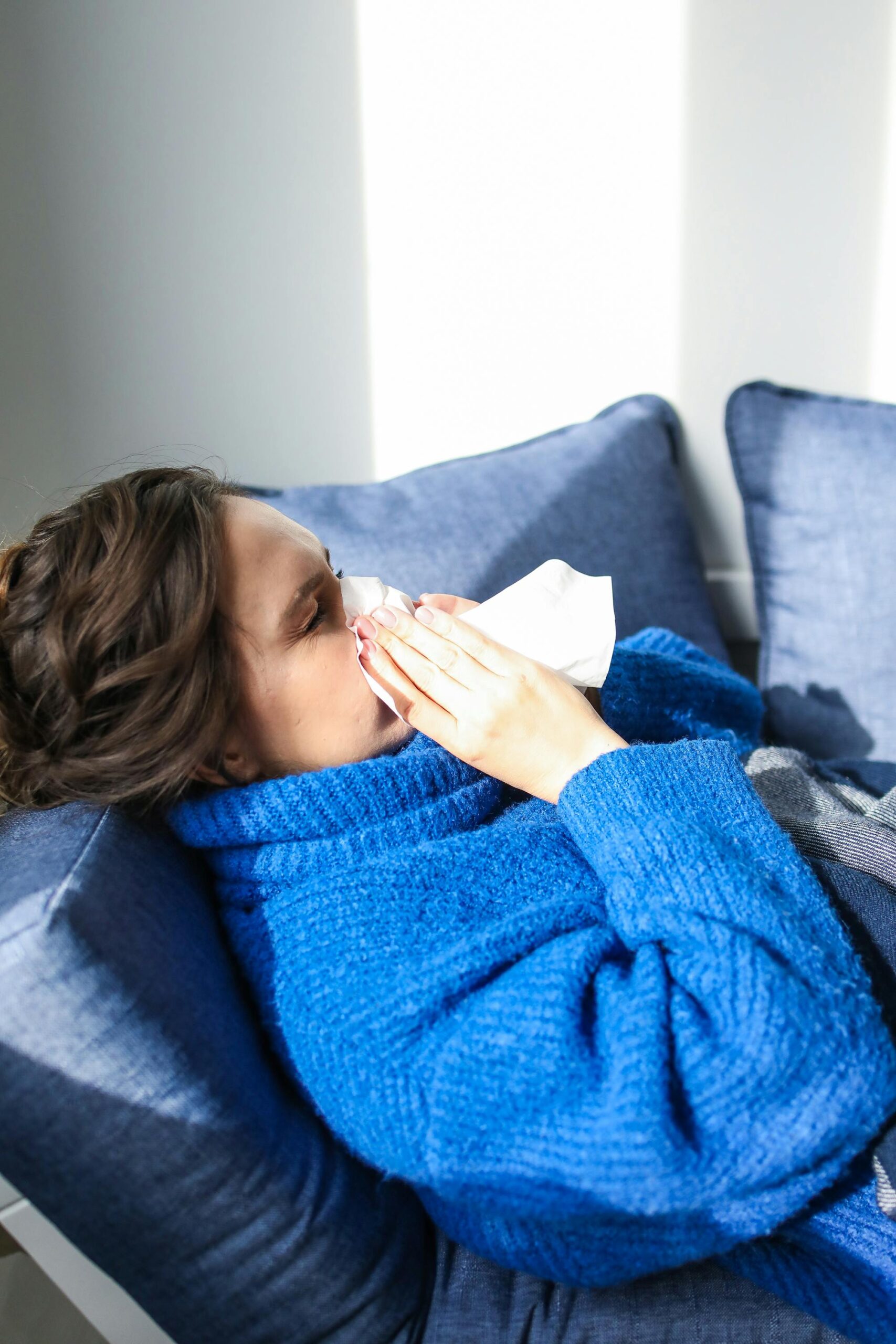We spend approximately one-third of our lives sleeping. Quality sleep benefits overall health and is crucial for everything from immune system function to hormone and blood sugar balance to learning and memory. In this article, we’ll unpack what happens while we sleep, the root causes underlying sleep issues, and discuss several ways to optimize your sleep.
A restorative process for the brain and body
While we sleep, the glymphatic system (a network of vessels that clear waste from the central nervous system) gets to do its job. While there are a few physiological theories of why we sleep, research suggests that a major function is to allow the brain to clear itself of neurotoxic waste products produced during our waking hours. Additionally, cellular processes such as protein synthesis, muscle repair, and tissue growth all occur during sleep.
Root causes of sleep issues
There are a variety of potential root causes underlying sleep issues:
- Hormone imbalances – Hormone imbalances such as low estrogen or progesterone can contribute to sleep disturbances and frequent awakenings, especially in menopausal and perimenopausal women. These hormonal shifts can manifest as night sweats, hot flashes, irritability, anxiety, and difficulty relaxing, all of which can interfere with sleep. Achieving hormonal balance has been shown to help improve sleep quality.
- Blood sugar imbalances – Blood sugar appears to have a bidirectional relationship with sleep. High blood sugar before bed can contribute to difficulty falling and staying asleep. Low blood sugar drops during sleep can cause frequent awakenings and difficulty sleeping through the night. In the other direction, poor sleep (in both duration and quality) and broken sleep with multiple awakenings, can dysregulate blood sugar and insulin levels. Insulin resistance, type II diabetes, and obesity are all associated with inadequate sleep.
- Nutrient deficiencies – A cross-sectional analysis of NHANES 2005-2016 data suggests a connection between short sleep duration (of less than 7 hours) and an inadequate micronutrient intake of vitamins A, C, D, E, K, magnesium, and calcium. Research is growing to further elucidate the relationship between sleep and nutrient status. Targeting specific nutrients at suboptimal levels, such as magnesium, may positively impact sleep quality. Some research suggests that magnesium deficiencies may contribute to inadequate sleep by shifting melatonin levels and interfering with nerve signaling. A 2022 systematic review indicated an association between magnesium status and sleep quality via observational studies. However, the randomized clinical trials showed conflicting results. While more research is needed to clarify the relationship between magnesium and sleep, supplementation with certain forms of magnesium may benefit you. More on specific magnesium supplements we recommend later in this article.
- Under-eating/dieting – Undereating and restrictive diets have been correlated with poor sleep quality (including difficulty falling asleep and a decreased duration of deep sleep) as well as mood issues.
- Gut issues (especially parasites) – Sleep also has a bidirectional relationship with gut health and the immune system. Parasitic, viral, and bacterial infections and the corresponding response from the immune system can negatively impact sleep patterns. GI issues such as GERD, IBS, IBD, and peptic ulcer disease have been shown to influence sleep quality and the sleep-wake cycle. In the other direction, sleep disorders and disturbances have a strong impact on gastrointestinal symptoms. Gut microbiome diversity has also been linked with healthier sleep efficiency and total sleep time. Thus improved gut health and sleep quality may benefit each other in both directions.
- Mold toxicity – Mold can cause a variety of chronic health concerns, including sleep issues. Some research has indicated that exposure to mold at home and/or at work is correlated with insomnia, snoring, and excessive daytime sleepiness. For those experiencing sleep issues along with other chronic symptoms (such as allergies, asthma, chronic bronchitis, and vision issues), it is worth assessing your home and body for the potential presence of mold toxicity.
- Cortisol dysregulation – Cortisol plays an important role in the sleep-wake cycle. Cortisol is produced by the hypothalamic pituitary adrenal (HPA) axis, which is involved in both stress and sleep. Disruption of the HPA axis and changes in the rhythm of cortisol production can impact sleep cycles negatively. HPA axis hyperactivity has been linked to sleep fragmentation, decreased slow-wave sleep, and shortened sleep time. Chronic stress, suboptimal nutrition, and other conditions and imbalances can lead to HPA axis dysfunction. A comprehensive adrenal panel with cortisol urine or saliva testing can be used to identify cortisol dysregulation. Cortisol can be balanced through nutrition, stress reduction techniques, and targeted supplementation.
- Sleep apnea – Sleep apnea, including central sleep apnea (CSA) and obstructive sleep apnea (OSA), is a group of sleep disorders characterized by abnormal breathing (reductions or pauses) during sleep, contributing to poor sleep quality. Sleep apnea is associated with a variety of health complications, such as a higher risk of cardiovascular and metabolic disease. Symptoms of CSA include daytime fatigue, headaches, frequent awakenings, chest pains and/or shortness of breath at night. Symptoms of OSA include loud snoring (with choking/gasping for air sounds), daytime fatigue, headaches, dry mouth, frequent awakenings, and restless sleep. Factors such as sleep position, weight, exercise, and alcohol consumption are some of the modifiable factors that can influence the presence or absence of sleep apnea.
- Poor sleep hygiene/lifestyle – sleep hygiene encompasses the habits and behaviors that contribute to high-quality uninterrupted sleep, such as maintaining a consistent sleep-wake schedule, bedtime routine, and bedroom environment. This includes daily lifestyle habits such as morning and night light exposure, physical activity, caffeine and alcohol consumption and timing, and meal timing before bed. Late-night scrolling and screen exposure, eating or drinking too late in the evening, and a suboptimal sleep environment that is too light, noisy, or warm are some prime examples of poor sleep hygiene. Poor sleep hygiene can be a major contributor to sleep issues and disruptions. We’ll discuss many of the ways to develop optimal sleep hygiene below.
- Anxiety – While there are various techniques to help improve sleep quality, untreated anxiety often needs to be addressed for sleep to improve. The mental and physical symptoms that go along with anxiety, including racing thoughts and increased heart rate, contribute to issues falling asleep and staying asleep throughout the night. Check out our guide for alleviating anxiety naturally using a functional medicine approach via nutrition, supplements, lifestyle, and exercise.
Let’s dive into some practical ways to optimize your sleep.
1. Practice smart light and exercise timing
The body’s circadian rhythm synchronizes with environmental cues such as light, temperature, and physical activity. Light is the most powerful cue to the circadian clock which is why darkness is a signal for sleep and light is a signal to be awake and alert. We are the most sensitive to light about 1 hour after waking in the morning, 2 hours before bed, and throughout the night.
- Get sunlight within 1 hour of waking up – Morning sunlight exposure within 1 hour of waking is ideal to keep circadian rhythms in alignment. Light exposure in the early morning hours has the strongest antidepressant effect, making it an effective treatment for Seasonal Affective Disorder (SAD). Lightboxes or light therapy lamps are great options for mornings when sunlight exposure isn’t possible.
- Keep intense exercise to the earlier part of the day – Regular movement is key for overall health and is an environmental signal for your circadian clock. Physical activity throughout the day can also make it easier to fall asleep at night, may help improve sleep quality, and sleep-related hormonal responses. However, intense exercise should be reserved for the earlier part of the day to avoid keeping you awake at night.
- Avoid overhead lights/blue light before bed – avoiding overhead lights and dimming the lights 1-2 hours before bed helps to prepare the body for sleep. Similarly, blue light from screens like smartphones and TVs hinders the production of melatonin and can increase cortisol production, keeping you awake. Avoiding screen time for at least 60 minutes before bed is ideal. Blue light-blocking glasses and/or apps (such as f.lux for your devices) are helpful for limiting blue light exposure throughout the day and evening.
2. Maintain a consistent sleep/wake cycle
Developing a consistent sleep-wake routine (i.e. going to bed and waking up around the same times every day) will help to regulate your circadian rhythm. A fluctuating sleep-wake schedule interferes with consistent sleep and can create circadian misalignment. Choosing your ideal sleep and wake times to include 8 hours of sleep per night can be helpful for creating a schedule that works best for you. If your ideal bedtime is much earlier than your current routine, winding down for bed 30 minutes earlier and making that a habit first can be a good place to start while gradually moving toward your new bedtime.
3. Cut off caffeine 10 hours before bed
The average half-life of caffeine is about 5-6 hours, meaning if you drink a cup of coffee in the morning containing 80mg of caffeine, 40mg of caffeine will still be in your system 5-6 hours later. Sensitivity to caffeine, and caffeine-induced insomnia, are influenced by genes such as CYP1A2 and ADORA2A. Variants in these genes have been shown to impact how quickly we can metabolize caffeine and may play a role in caffeine-induced anxiety and insomnia. For those who experience sensitivity to caffeine, it’s worth trying out switching to decaffeinated options.
Matcha can be an excellent alternative to coffee. Depending on the amount and type, matcha can contain anywhere from 40-180 mg of caffeine, so should still be cut off by the afternoon (around 2-3pm at the latest). Matcha contains beneficial compounds including catechins (a polyphenol with potent antioxidant properties) and L-theanine. L-theanine helps to boost cognition and alertness while providing more sustained energy without the crash that can occur after caffeine intake alone. Research has shown that L-theanine can reduce stress and promotes relaxation through its ability to elevate alpha brain wave activity.
4. Have a blood sugar-balancing evening meal or snack
Eating protein, healthy fat, and fiber every 3-4 hours helps to keep blood sugar stable throughout the day. The timing and composition of the last meal of the day can influence any blood sugar drops during the night (which can interfere with sleep). Depending on the individual, some feel better allowing themselves 2-3 hours to digest before bedtime to avoid symptoms such as acid reflux, while others sleep better having a blood sugar-balancing snack closer to bedtime (we find this to be especially true for our female clients).
Pairing a carbohydrate with some protein and/or fat (rather than a carbohydrate alone) helps keep blood sugar levels stable. For example: chia seed pudding with berries, oatmeal with nut butter, or yogurt (Greek or dairy-free) with tart cherries.
If dinner is your last meal, make sure you’re balancing out the carbohydrates with protein/fat. i.e. pasta with sautéed veggies and shrimp; tacos with chicken, avocado, and roasted veggies; rice with salmon and broccoli, etc.
Experimenting with nighttime meal timing is the best way to figure out what works best for you.
5. Limit alcohol consumption
While alcohol may make you fall asleep faster (due to its sedative properties), it significantly interferes with sleep quality and duration. Regardless of the amount, studies have shown alcohol consumption to significantly suppress REM sleep (both the onset of the first REM cycle and the total amount of REM sleep). Although avoiding it altogether has some undeniable health benefits, social health is a highly underrated and important consideration of overall well-being. If you do choose to drink, aim to reserve drinking for 1-2 nights per week (in social settings) and stick to 1-2 drinks per night.
When planning to drink, consider supplementation such as:
- NAC 600mg (before and after)
- Electrolytes (before and after)
- B-complex (the morning after)
- Molybdenum (if drinking wine)
6. Create an optimal sleep environment
The goal is to set up an optimal sleep environment (think: cool, dark, and quiet) to prime yourself for restful and uninterrupted sleep.
- Temperature – we want to keep bedroom temperatures between 60-67 degrees. Consider getting a cooling mattress, pillow, and/or sheets if you’re a hot sleeper.
- Light – to keep your bedroom as dark as possible, consider investing in blackout shades, or an eye mask.
- Sound – to block out noise, sound machines and soft wax earplugs are great options for both home and travel
- Sleep hygiene- maintaining good sleep hygiene means reserving your room as a place to sleep (with sex being the one exception). The goal is to associate your bedroom with rest and relaxation. Rather than tossing and turning if you’re having trouble falling asleep, try getting out of bed and going into a different room to read or listen to a podcast until you feel tired enough to back to bed.
7. Craft your relaxing bedtime routine
Choose 2-3 activities to include as part of your bedtime routine and help you wind down for the night such as:
- Meditation, visualization, deep breathing, non-sleep deep rest (for example, this NSDR recording), bedtime yoga, sauna, acupressure mat, reading, relaxing music, skin care – or even washing dishes.
8. Incorporate targeted supplements
When it comes to melatonin, ZzzQuil, and other pharmaceuticals–proceed with caution.
- Melatonin supplementation can be tricky. Taking too much or for too long a period of time can interfere with melatonin production and worsen an already dysregulated sleep-wake cycle. It can be helpful to use short-term to help with jet lag. Keep in mind that most melatonin supplements are over-dosed; you really only need 0.3-0.5mg.
- ZzzQuil (and similar products containing antihistamines like doxylamine succinate) can block the activity of the neurotransmitter acetylcholine in the brain. Acetylcholine is critical for memory, reasoning, and attention, and levels can decline over time. The cognitive impact of this effect can linger after use is discontinued.
- Pharmaceutical sleep aids can be habit-forming and/or have unpleasant side effects and health implications depending on how frequently they’re used.
Natural sleep aid supplementation to consider:
- Magnesium glycinate (240-360mg) – magnesium is involved in over 300 biochemical reactions in the body. It can get depleted from stress, medications, insufficient intake of magnesium food sources, and absorption issues. Magnesium supplementation may improve sleep quality, stress levels, mood, chronic headaches, and PMS symptoms. Magnesium has been linked with potential benefits for sleep. Magnesium glycinate (magnesium + the amino acid glycine) is one of the most bioavailable forms, is less likely to promote loose stools (which certain forms can trigger), and is generally well-tolerated.
- L-theanine (200-400mg) – L-theanine (the amino acid mentioned above found in matcha and other teas) may benefit sleep and promote relaxation. It’s been shown to regulate neurotransmitters in the brain (GABA, serotonin, and dopamine), contributing to its calming effect. A 2019 randomized controlled trial found that L-theanine supplementation of 200mg daily for 4 weeks reduced symptom scores related to stress (depression, anxiety, sleep issues) while also improving cognitive function scores. A word of caution that L-theanine can elicit vivid dreams.
- L-tryptophan (1g) – L-tryptophan is an essential amino acid that has been correlated with improved sleep quality and quantity in both food and supplement forms. Some research has also provided evidence for its potential benefit to PMS symptoms and anxiety.
- Nervine herbs – nervine herbs (such as chamomile, valerian root, hops, skullcap, lemon balm, lavender, and passionflower) may help promote restful sleep and relaxation by supporting the central nervous system. Some studies have found certain nervine herbs to help improve sleep quality and reduce anxiety levels and insomnia.
Most people who struggle with sleep usually do best taking magnesium regularly and then cycling additional support (such as L-theanine or L-tryptophan) every 2 weeks.
There are many other natural sleep aids that we use in our practice to help clients with stubborn sleep issues such as glycine, CBD, inositol and more. When we learn more about you and your body, we are able to recommend an expert, customized sleep supplement plan.
Optimizing Sleep – Final Thoughts
Sleep is a key pillar of health along with nutrition, movement, and stress management. While there are many possible root causes underlying sleep issues, there are a variety of strategies we can use to improve sleep quality and quantity without the use of pharmaceutical sleep aids. If you’re overwhelmed by the undertaking of tackling your sleep issues alone, we’re here to help create a personalized plan for you.








